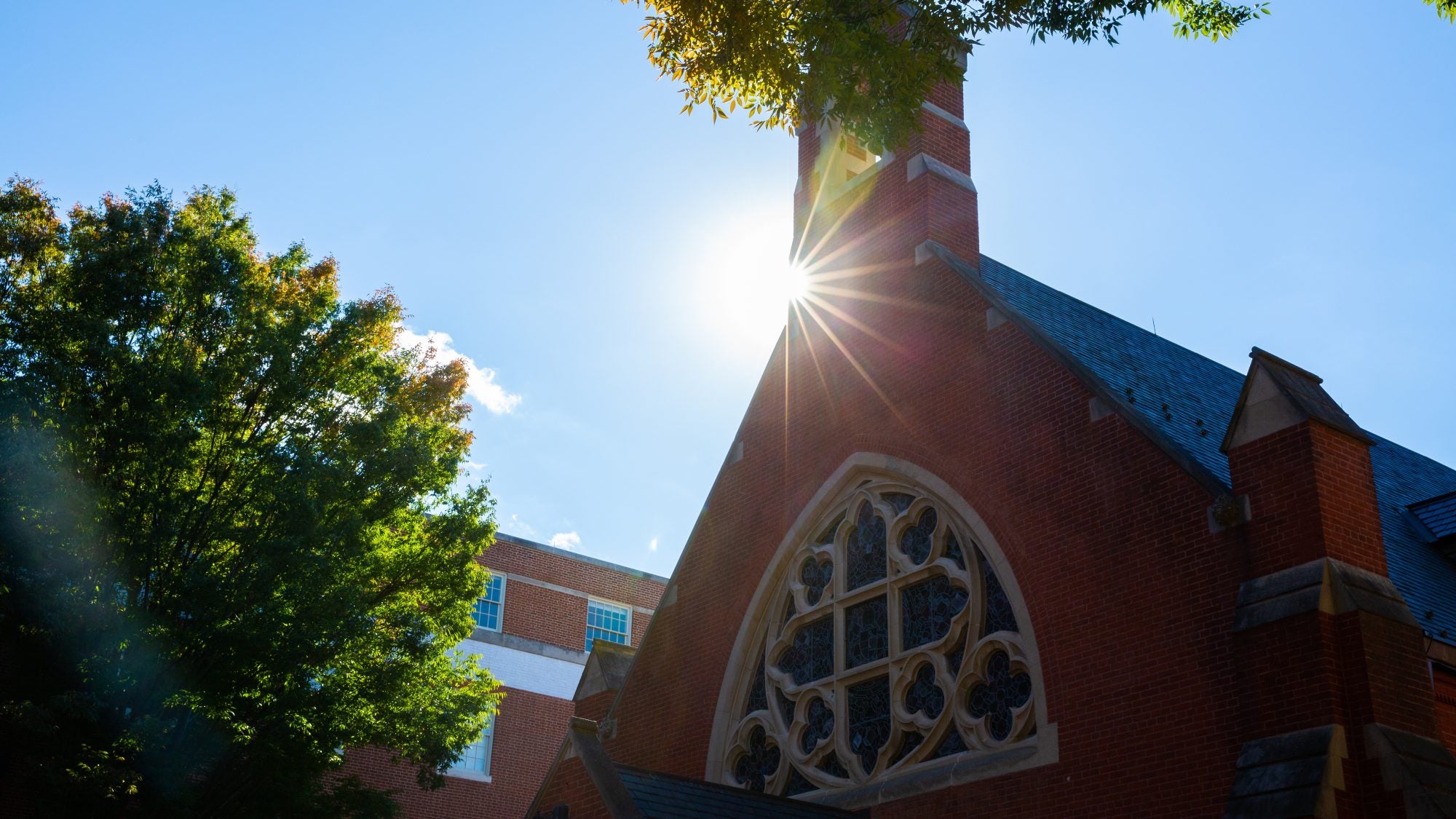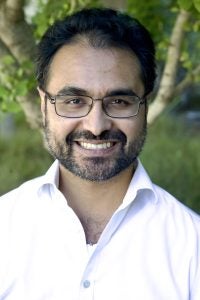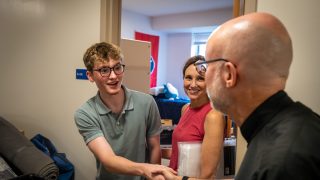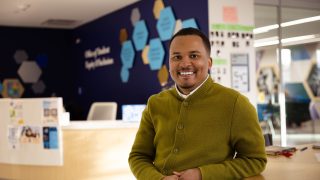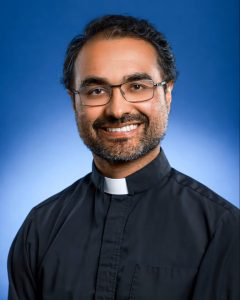
Fr. Lucas Sharma, S.J., has joined Georgetown’s Jesuit community with a unique mission.
Starting this fall, he will serve as a Jesuit pastoral associate in Georgetown’s LGBTQ Resource Center, minister to the campus community, and continue his studies on religion, gender and sexuality as part of his Ph.D. in sociology.
Sharma’s work is part of Georgetown’s inaugural John Hayden Doctoral Dissertation Fellowship, made possible through the estate of John T. Hayden, which also supported the university’s new Hayden residence hall. The fellowship allows Sharma to accompany students, support and develop programming, and conduct research on the topic of LGBTQ+ Catholics.
“It is a once-in-a-lifetime opportunity to be able to give in this particular way and continue my research,” he said. “Hopefully, my work can inform how we might make Georgetown a place of more belonging for students on the margins across identities.”
Sharma graduated from Gonzaga University and volunteered in the Jesuit Volunteer Corps in Washington, DC. He pursued a master’s degree from Loyola University Chicago and joined the Jesuits in 2012.
Sharma has since earned master’s degrees from Fordham University and the Jesuit School of Theology of Santa Clara University and has taught sociology at Seattle University. He continues to serve on the university’s board of trustees and as the Jesuit advisor to Seattle’s law school dean. He also recently published a study in the Sociology of Religion that predicts Catholic priests’ attitudes toward homosexuality based on their approval of Pope Francis.
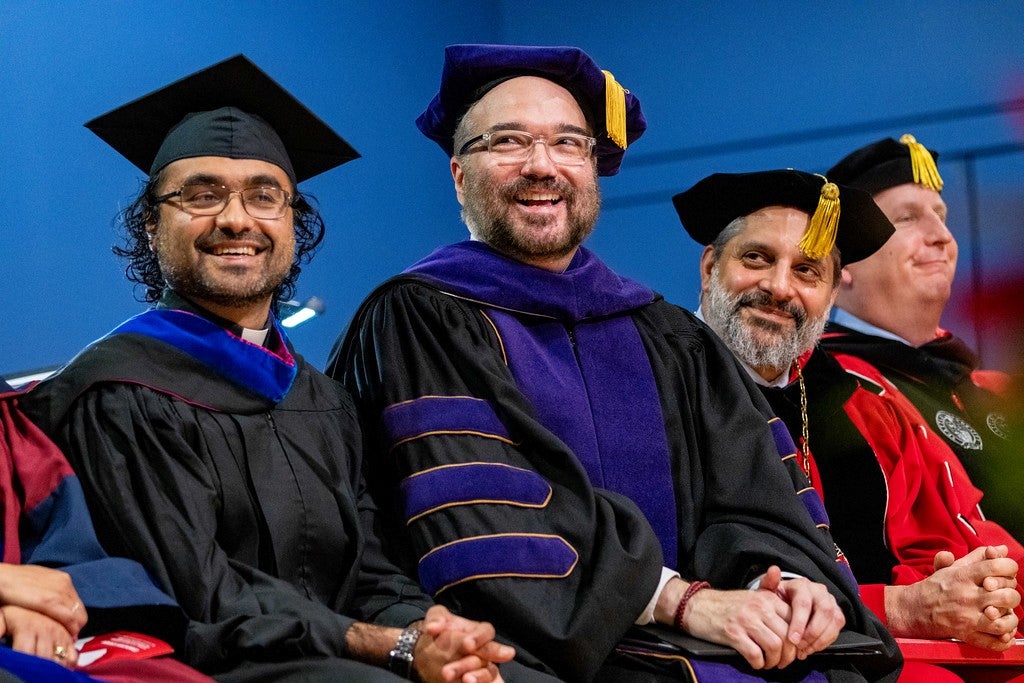
“We are honored to have Fr. Lucas Sharma, S.J., join Georgetown for the Hayden Dissertation Fellowship and enrich our community with his insights, research and ministry,” said Fr. Mark Bosco, S.J., vice president for Mission & Ministry. “We look forward to working alongside him to create an ever more welcoming environment for our student body.”
Fr. Sharma’s appointment marks an important step in involving Jesuits in the LGBTQ Resource Center’s work, said Eleanor Daugherty, vice president for Student Affairs.
“We are delighted to welcome Fr. Sharma to our LGBTQ Resource Center and support his impactful scholarship as a sociologist,” she said. “In partnering with the Office of Mission & Ministry and integrating Fr. Sharma into our work, we are furthering Georgetown’s mission of caring for our students’ whole selves and helping all Hoyas feel like they belong and that they matter.”
At Georgetown, Sharma will complete his dissertation for the University of California San Diego, in which he’s interviewing LGBTQ+ men and women who have left and stayed in the Catholic Church. He’s hoping to learn how LGBTQ+ communities understand their Catholic faith and sexuality in light of Church teachings and the Catholic Church.
We sat down with Sharma to learn more about how he was drawn to studying and supporting LGBTQ+ Catholics, his research findings and his new role at Georgetown.
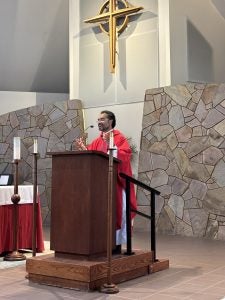
How did you become interested in working with the LGBTQ Catholic community?
During the pandemic, I lived at our Jesuit retirement center in Los Gatos, California. One day, a Jesuit said, ‘You should ask Father Leo about his ministry in the 80s in San Francisco with people with HIV.’ So I [did]. We sat outside, and this Jesuit priest started to cry as if he was remembering getting involved for the first time. He said, ‘I found a population that nobody cared about, and I wanted to go be there.’
I am inspired by Father Leo’s example to ‘go be there,’ and want to do the same – to accompany not just LGBTQ Catholics but also all people who identify as LGBTQ because I also desire to follow in Pope Francis’ words of ‘todos, todos, todos,’ the Church is for everyone.
That’s the reason I find a lot of joy in being a Catholic priest, a joy in working at Jesuit colleges. I feel this firm conviction that they really are for all. The hope for me is that we might someday have a church where people feel like they belong.
